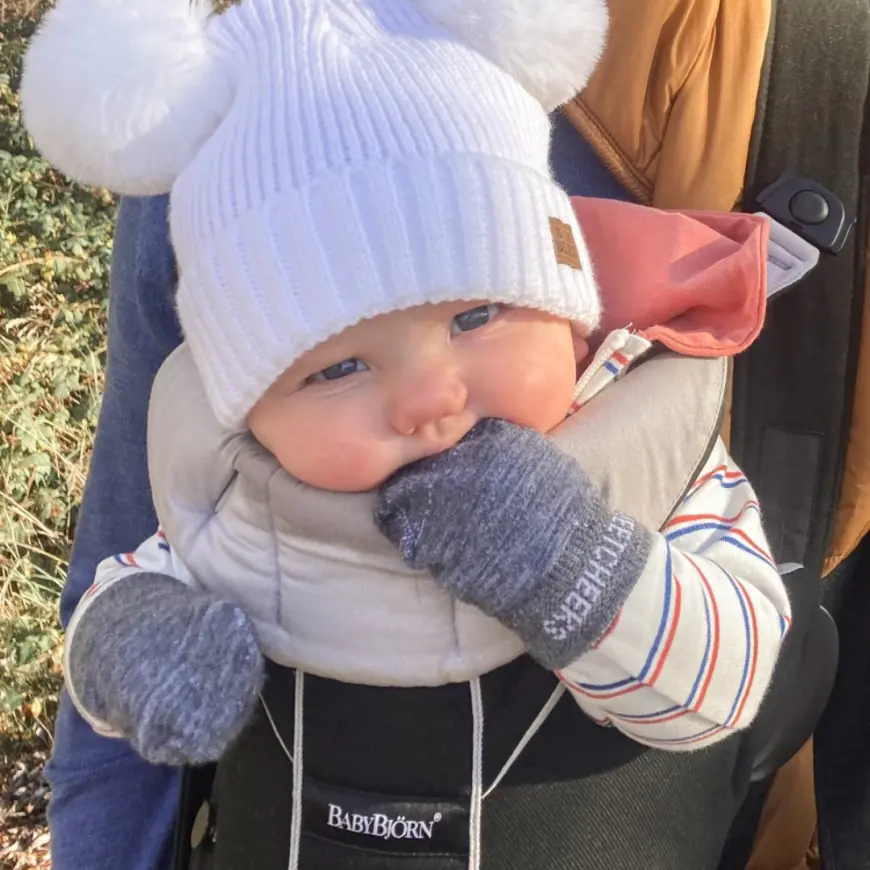Why Parents Are Switching to Natural Wool Gloves for Their Infants
Parents are switching to natural wool gloves for their infants thanks to their softness, warmth, breathability, and gentle protection for sensitive skin.

It’s no secret that parenting today is a whirlwind of decisions. Every purchase — from bottles to blankets — seems to come with a side of worry. And when it comes to protecting those tiny hands from the chill, more and more parents are turning away from synthetic options and reaching for something timeless: natural wool gloves for infants.
Why? Well, let’s talk about it.
The Problem with Synthetic Babywear
Picture this: it’s a crisp morning, you're bundling up your baby, and you slip on those cute, colorful gloves you grabbed off a department store rack. But soon enough, little cheeks start getting blotchy, the baby’s scratching more than usual, and something feels... off.
That’s the downside of many synthetic fabrics — they can trap heat, irritate delicate skin, and offer poor breathability. Babies, especially newborns, have super sensitive skin. It's not just thinner than an adult’s — it's also less capable of handling moisture or chemicals.
And when it comes to something as essential as gloves for infants, comfort and safety need to come first. That’s where natural wool comes in — particularly ultra-soft, fine merino wool.
So, What’s So Special About Natural Wool?
You’d be surprised. This isn’t the itchy wool you remember from grandma’s holiday sweaters. Natural wool for babies, especially high-quality types like merino, is:
- Breathable – It regulates temperature naturally, keeping tiny hands warm without overheating.
- Hypoallergenic – Perfect for sensitive skin that reacts to polyester and other synthetics.
- Moisture-Wicking – It pulls sweat away from the skin, keeping hands dry and cozy.
- Odor-Resistant – Because, let’s be real — babies manage to get smelly even when they just sit there.
- Biodegradable – Good for the baby, better for the planet.
Wool gloves also tend to stay in place better thanks to natural elasticity. No more pulling lost mittens out of the car seat or finding one glove under the crib (how does that even happen?).
Parents Are Craving Simplicity and Peace of Mind
Modern parents are smart — and frankly, tired of being misled by "eco-friendly" labels slapped onto synthetic blends. Wool is as old-school as it gets, but in the best way. It’s a return to basics. Real fibers. Real warmth. Real comfort.
Mothers and fathers alike are talking about how natural wool babywear — gloves included — has helped reduce skin flare-ups, minimized fussing during chilly strolls, and even helped with sleep (because a cozy baby is a calm baby, right?).
It’s not just about gloves, though. The whole wool wave is catching on, from newborn singlets to socks and beanies. More parents are building baby wardrobes that are breathable, natural, and seasonally adaptable. One mum on a parenting forum put it perfectly: “Wool is like giving your baby a hug that breathes.” Honestly, couldn’t have said it better.
But Aren’t Wool Products High-Maintenance?
That’s the kicker — not anymore.
Modern wool baby gear is often machine washable (just check the label). And yes, it might cost a smidge more upfront, but parents are realizing that the long-term benefits — durability, skin health, and sustainability — far outweigh the price tag.
Plus, babies grow fast, but quality wool can easily be passed down to siblings, cousins, or even sold in those active second-hand parenting groups online. In that sense, it’s a win-win: better for the baby, better for the budget, and better for Mother Earth.
Wrapping It Up (Warmly)
When choosing winter gear for babies, it’s easy to get overwhelmed by options. But when you zoom out and focus on what really matters — skin health, comfort, safety, and sustainability — the choice becomes surprisingly simple.
That’s why the quiet shift to natural wool gloves for infants isn’t just a trend. It’s a movement — one grounded in thoughtful parenting, gentle materials, and a desire to give children the softest start possible.
And as more parents explore natural fabrics for babywear — whether it’s mittens or newborn singlets — one thing’s clear: nature still knows best.
What's Your Reaction?
 Like
0
Like
0
 Dislike
0
Dislike
0
 Love
0
Love
0
 Funny
0
Funny
0
 Angry
0
Angry
0
 Sad
0
Sad
0
 Wow
0
Wow
0


















































